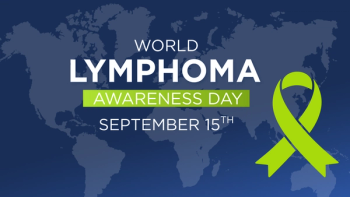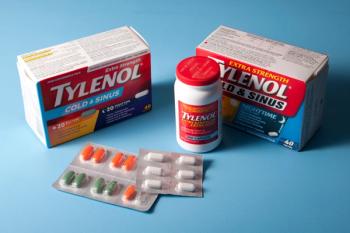
Pharmacists play a crucial role in managing drug interactions and optimizing treatment with CDK4/6 inhibitors for HER2-positive breast cancer patients.

Pharmacists play a crucial role in managing drug interactions and optimizing treatment with CDK4/6 inhibitors for HER2-positive breast cancer patients.

Pharmacists enhance patient care by managing CDK4/6 inhibitors, addressing adverse effects and ensuring effective therapy selection in oncology.

New IMWG/IMS guidelines enhance risk assessment for multiple myeloma, revealing daratumumab's impact on patient outcomes in real-world settings.

New research links rapid CAR T-cell expansion to delayed neurotoxicity in patients with multiple myeloma.


Elranatamab enhances MRD negativity in relapsed/refractory multiple myeloma post idecabtagene vicleucel, promising improved treatment outcomes.

Explore the impact of CDK4/6 inhibitors in HR+/HER2– breast cancer treatment and the essential role of oncology pharmacy practice.

Belantamab mafodotin with bortezomib shows promising survival benefits for lenalidomide-refractory multiple myeloma patients.

Idecabtagene vicleucel shows a lower infection risk than other BCMA therapies for multiple myeloma.

Linvoseltamab combined with carfilzomib shows promising results in treating relapsed/refractory multiple myeloma.

Intravenous immunoglobulin (IVIG) treatment significantly reduces infection rates in multiple myeloma patients receiving BCMA bispecific antibodies, showcasing its clinical benefits.

Teclistamab and other bispecific antibodies enhance multiple myeloma treatment but significantly increase infection risks, necessitating proactive management strategies.

Elranatamab combined with daratumumab and lenalidomide shows promising results for treating newly diagnosed multiple myeloma, enhancing patient outcomes.

Travelers face rising infectious disease risks, including measles, chikungunya, chagas disease, and others.

The 2025 International Myeloma Society Annual Meeting unveils crucial updates to IMWG guidelines, enhancing response assessment and treatment strategies for multiple myeloma.

Cutting-edge insights and expert discussions on multiple myeloma will be presented at the 2025 IMS Annual Meeting in Toronto, shaping future treatment standards.

World Lymphoma Day highlights the rising prevalence of lymphoma and innovative treatments, emphasizing the role of pharmacists in patient care.

A fatal pediatric measles case in Los Angeles highlights the urgent need for MMR vaccination to protect vulnerable children from severe complications.

Pharmacists play a crucial role in managing myelofibrosis, enhancing patient education, adherence, and financial navigation for optimal care.

GLSI-100 shows promise in preventing HER2-positive breast cancer recurrence after standard therapy.

Florida's Surgeon General's plan to eliminate school vaccine mandates raises concerns about measles outbreaks and declining vaccination rates.

Jessica Lewis-Gonzalez, PharmD, BCOP, discusses the management of hematologic and non-hematologic toxicities in cancer patients, emphasizing the importance of proactive monitoring and collaboration between clinicians and pharmacists.

HHS and Robert F. Kennedy Jr prepare to unveil a report linking Tylenol use in pregnancy to autism, despite inconsistent study findings.

Patritumab deruxtecan shows promising efficacy in HR+/HER2– metastatic breast cancer, meeting key trial end points and highlighting its potential for advanced treatment.

Experts discuss radon—the second leading cause of lung cancer.

Jessica Lewis-Gonzalez, PharmD, BCOP, discusses the challenges of managing myelofibrosis, from its heterogeneity and symptom burden to limited curative options.

Health officials warn of rising Chagas disease cases in the US, linked to kissing bugs and the parasite Trypanosoma cruzi, urging public awareness.

New research uncovers how smoking accelerates pancreatic cancer progression through immune mechanisms, revealing potential for targeted therapies and improved screening.

September highlights Blood Cancer Awareness Month, focusing on education, early diagnosis, and support for multiple myeloma, lymphoma, and leukemia patients.

GLP-1 medications like semaglutide and tirzepatide significantly lower heart failure hospitalization risks, expanding treatment options for obesity-related conditions.